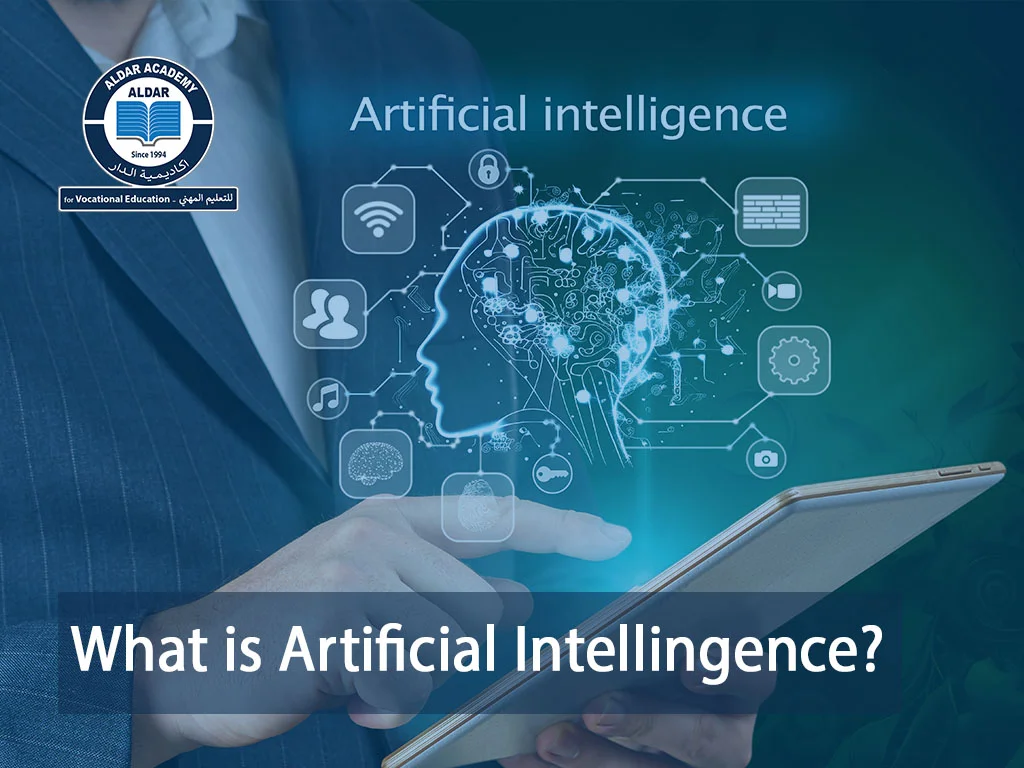- October 23, 2023
- Awad Samhan
- 0
AI Course at ALDAR Academy

The importance of an AI course at ALDAR Academy in Dubai reflects both the rapid development of artificial intelligence globally and the specific growth ambitions of Dubai as a major international city and business hub. Here are several reasons why AI courses are particularly crucial in this emirate:
- Dubai’s Vision for the Future: Dubai’s leadership has always emphasized a forward-thinking approach towards technological innovation. With the unveiling of plans like the “Smart Dubai 2021” initiative, the Emirate seeks to be a global leader in innovation driven by the digital revolution. AI courses are a way to build local expertise in line with this vision.
- Economic Diversification: For countries that have historically been dependent on oil revenues, such as the UAE, diversification is key to ensuring economic stability. By emphasizing AI education, Dubai positions itself to be a hub for AI businesses and startups, attracting investment and creating jobs outside the traditional sectors.
- Competitive Advantage: With other major cities also striving to be AI hubs, having a strong local talent pool trained in AI is crucial. Courses ensure that the workforce is equipped with the knowledge and skills necessary to drive innovation and compete globally.
- AI in Traditional Sectors: AI has applications in traditional sectors like finance, healthcare, logistics, and tourism – all vital parts of Dubai’s economy. By training more professionals in AI, these sectors can benefit from increased efficiency, predictive analytics, and improved customer experiences.
- Promotion of Research & Development: Dubai is not just focusing on the application of AI but also its development. Institutions like the Dubai Future Foundation have been set up to drive innovation. AI courses can lead to more groundbreaking research coming out of the region.
- Global Attraction: By offering quality AI courses, Dubai can attract talent from all over the world. This global talent pool can then contribute to the region’s growth, bringing in diverse perspectives and experiences.
- Preparation for AI Integration: As AI gets more integrated into daily life, every industry professional, whether in marketing, finance, healthcare, or any other field, will need to have a basic understanding of AI capabilities. Courses in AI prepare the workforce for this eventuality.
- Ethical Implications: With the rise of AI, there are many ethical considerations to address, such as privacy concerns, bias in algorithms, and more. Courses can help address these issues, training future leaders to use AI responsibly.
for Dubai to realize its vision of becoming an innovative, forward-thinking, and diversified economy, AI education is not just beneficial but essential. AI courses in Dubai help bridge the gap between current capabilities and the city’s ambitious goals, ensuring it remains at the forefront of technological advancements in the coming decades.
What is Artificial Intelligence Course
An artificial intelligence (AI) course is a structured program of study that introduces students to the fundamental concepts, techniques, applications, and challenges of artificial intelligence. The content and depth of such courses can vary significantly based on the target audience, prerequisites, and the objective of the course (introductory vs. advanced). Here’s an overview of what an AI course might cover:

Introduction to AI:
Definition and history of AI.
Overview of AI subfields like machine learning, natural language processing, robotics, and expert systems.
Problem-solving and Search Algorithms:
Basic problem-solving methods like state space representation.
Classical search strategies including depth-first search, breadth-first search, and best-first search.
Heuristics and informed search strategies, such as A*.
Knowledge Representation and Reasoning:
Propositional and first-order logic.
Semantic networks, frames, and ontologies.
Inference, resolution, and reasoning under uncertainty.
Machine Learning:
Introduction to the concepts of training data, algorithms, and models.
Supervised learning techniques like linear regression, decision trees, and neural networks.
Unsupervised learning concepts, including clustering and dimensionality reduction.
Introduction to reinforcement learning.
Natural Language Processing (NLP):
Basic concepts in linguistics.
Techniques for text processing, parsing, and sentiment analysis.
Introduction to machine translation and chatbots.
Robotics:
Introduction to robots and their components.
Basics of robot movement, planning, and perception.
Human-robot interaction.
Expert Systems and Knowledge Engineering:
Basics of rule-based systems.
Forward and backward chaining.
Knowledge acquisition and validation.
Neural Networks and Deep Learning:
Introduction to artificial neurons and architectures.
Basics of deep learning, convolutional neural networks (CNNs), and recurrent neural networks (RNNs).
AI Ethics and Societal Impacts:
Discussion on the ethical implications of AI.
Bias in AI, privacy issues, and the potential effects on employment.
Practical Implementation:
Using platforms and frameworks like TensorFlow, Keras, or PyTorch.
Hands-on exercises, projects, and real-world case studies.
Some courses might focus exclusively on a subfield (e.g., a dedicated course on deep learning) or might be designed specifically for professionals in a given sector (e.g., AI in healthcare or finance). Always ensure that the course content aligns with your goals and prerequisites when selecting an AI course.
Advantages and benefits of taking AI course

The benefits of taking an AI course are manifold, given the rapidly expanding influence of artificial intelligence across industries and aspects of daily life. Here are some key benefits:
- Skill Enhancement: AI courses allow participants to acquire technical skills that are highly sought after in the current job market. These skills include programming, data analysis, machine learning modeling, and more.
- Career Opportunities: With the growing integration of AI in various industries – from finance and healthcare to entertainment and transportation – professionals trained in AI are in high demand, which can lead to higher salary prospects and a broader range of job opportunities.
- Problem Solving: Learning AI equips individuals with advanced problem-solving skills. AI techniques often provide ways to approach complex issues and obtain solutions that might be counterintuitive or challenging for humans to discern independently.
- Business Growth: For entrepreneurs and business professionals, understanding AI can open up avenues for innovation, optimization, and scaling. It can help in improving customer experiences, optimizing supply chains, predicting market trends, etc.
- Interdisciplinary Application: The principles and techniques learned in AI can be applied to numerous fields, from biology and medicine to finance and art. This interdisciplinary nature ensures that the skills are useful regardless of one’s primary domain of expertise.
- Future-Proofing: As automation and AI integration become more prevalent, many traditional job roles may change or become obsolete. Being educated in AI can help future-proof one’s career, ensuring adaptability and relevance in the evolving job market.
- Understanding Societal Impacts: AI has significant societal implications, from ethical concerns to shifts in the job market. Taking an AI course can provide a nuanced understanding of these implications, enabling informed decisions and discussions.
- Cognitive Enhancement: Studying AI can boost critical thinking, logical reasoning, and analytical skills, as the field often deals with intricate algorithms, data patterns, and strategic problem-solving.
- Research Opportunities: For academics and researchers, AI presents vast and uncharted territories of exploration. From developing new algorithms to understanding the broader impact of AI on society, there are myriad opportunities for groundbreaking research.
- Personal Projects and Hobbies: Beyond professional benefits, knowledge of AI can be applied to personal projects and hobbies, be it creating a personalized music recommendation system, developing a game, or even creating art through neural networks.
- Ethical Decision Making: A good AI course will also touch upon the ethical aspects of artificial intelligence. This can equip individuals to make ethical decisions in AI deployments, understanding biases, and ensuring fairness.
In essence, an AI course offers both tangible benefits, like career growth and skill acquisition, and intangible ones, such as a refined approach to problem-solving and a deeper understanding of the technology that is rapidly shaping our world.
